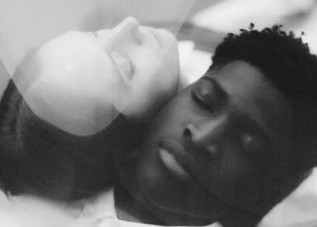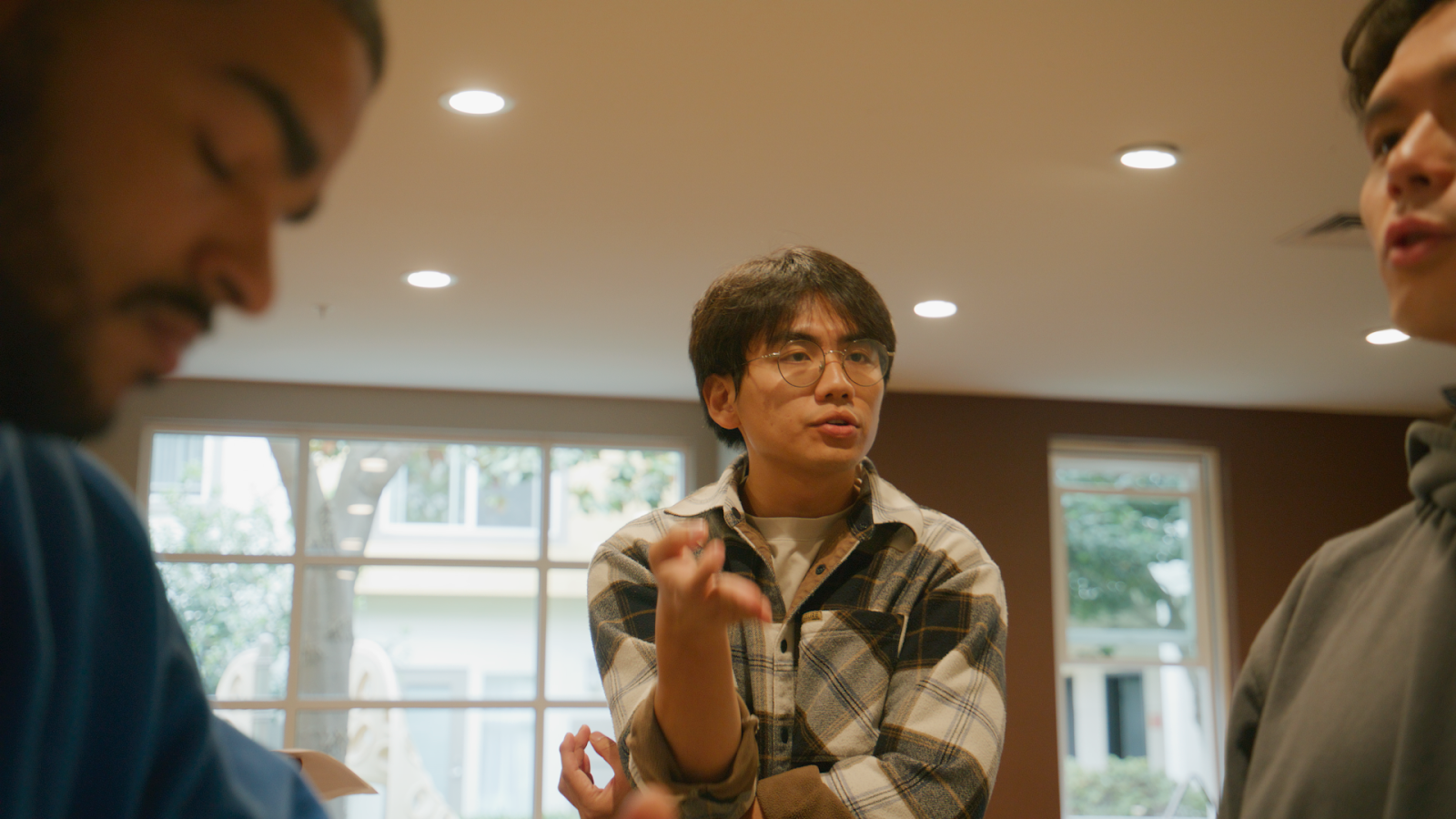
Photos and Interview by Meghan Marshall
On her new single “Fragments,” Miette Hope continues her warm blend of acoustic and electronic elements (think Joni Mitchell channeling Radiohead). This time, though, she produced the song herself. The track is part of an upcoming EP tentatively set for a fall release.
We talked to the New York singer-songwriter about how the song came together and how she channels past trauma to create her signature sound.
The production on your songs is electronic, vivacious, energetic, and theatrical. This presents a juxtaposition to your introspective, melancholy lyrics. Tell us about the relationship between your production and lyric writing, and how you approach them when working on a song.To me, a great song should be able to stand on its own. Once you know you have that, there are so many directions you can take the production from there. Production can elevate a song or it can compromise it, so I think it plays a super important role in how the lyrics and melody are perceived. My lyrics are much like a poetic diary, sharing my deepest thoughts and feelings and turning them into something consumable. The feelings expressed on paper represent something raw and complex that deserve a sonic experience deeper than words can convey. My main collaborator Ariza, who produced my 2019 EP Pendulum, and is the second half to my side project, The Natural Synthetic, is a musical soulmate and has an incredibly intuitive way of sonically expressing the concepts behind our work together. I learned much of what I know about music production from his influence and have since embarked on a music production journey of my own, co-producing our recent releases together as well as creating my own fully self-produced project and producing for other artists.
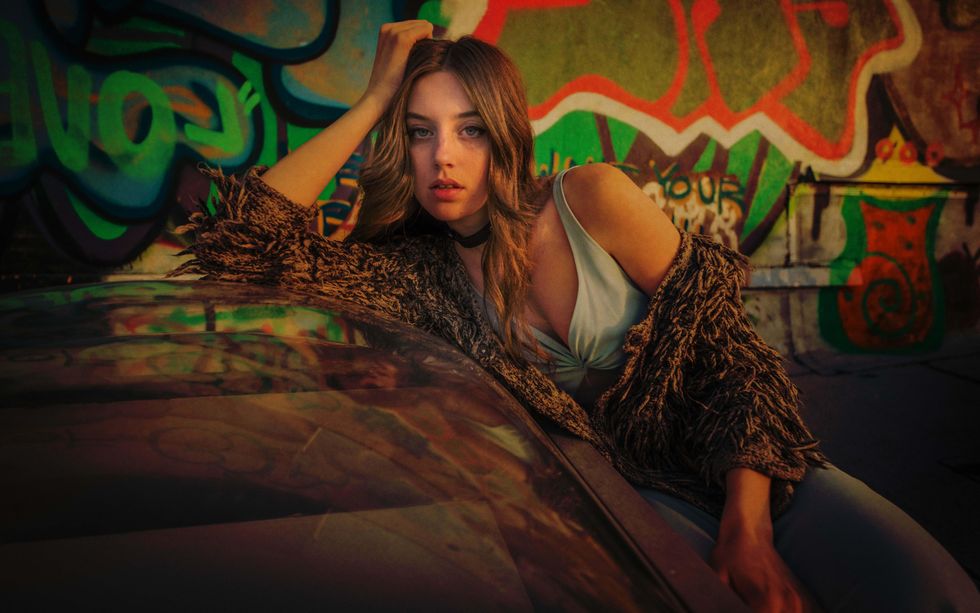
Your writing explores pain and grief. You can see this in your self-produced multimedia project Pendulum, in which you explore the pain of losing your father. How did creative expression aid you in healing?Pendulum was a huge emotional undertaking for me, but in a way that really aided my healing experience. Thinking and talking about my loss often felt uncomfortable, but writing about it gave me an opportunity to see it in a new light. What I came to understand about these old feelings stored away is that there were many people in the world who had experienced grief, addiction, mental illness, and had no outlet to express or process through these feelings. My ability to transform an emotional experience into something tangible and even beautiful has always been extremely healing for me. I started to realize that it could be healing for others as well. I knew that it was important for me to share this story with the world. The songs were written over the course of three days with Ariza and the videos were shot over the course of three days with help from friends in film. I wrote the screenplay and co-directed it with my talented friend Andrew Garcia who’s known for making pieces that are very emotionally moving. The music videos are meant to take place as a 3 part short film following the character through internal isolation, external searching and overindulgence, and finally a balance of the internal and external, acceptance and a sense of wholeness.
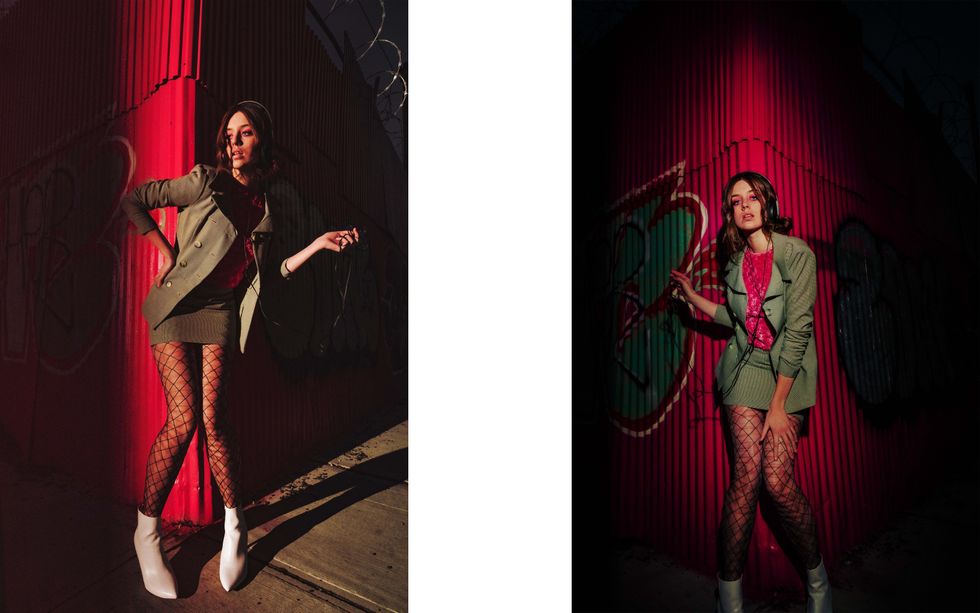
You are proudly bisexual. How has your queerness played a role in your music? Do you have any queer musicians you look up to?As a queer artist, I think representation is extremely important. When I was growing up, there weren’t many artists I could look up to, so it’s important for me to be my most authentic and proud self to show anyone looking up to me that it’s okay to be who you are. I wouldn’t say many of my songs are specifically about being queer, but I write about my experiences as a queer person and am open about my sexuality with my fans. I feel really lucky to now be living in a time when there are so many incredible LGBTQIA+ artists gaining success and recognition. There is still so much work to be done, but I’m proud of how far we’ve come.
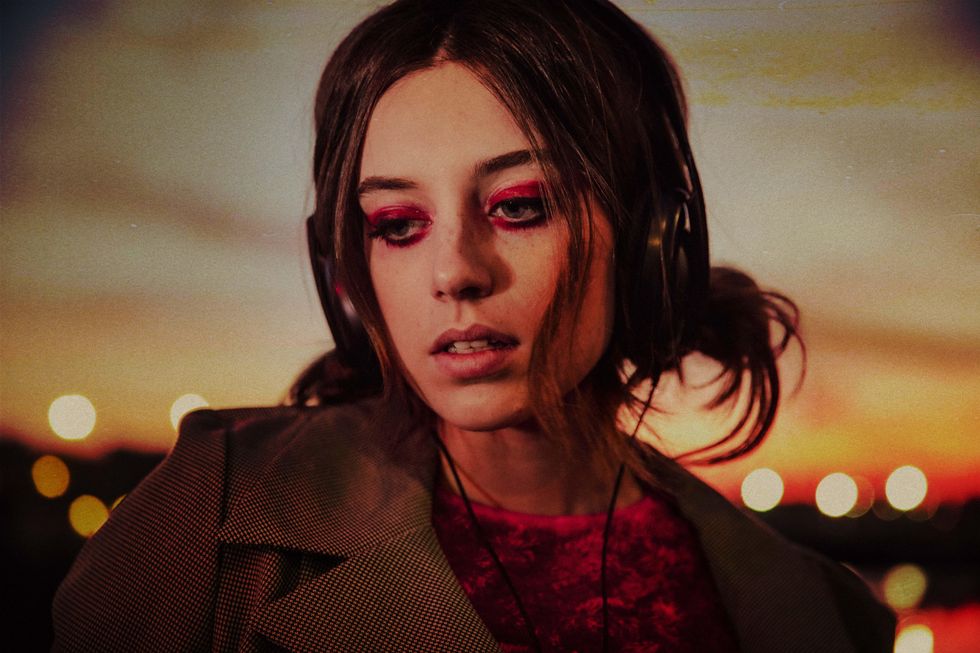
We worked together on the imagery for your single “Fragments.” There is an allusion in the song and the imagery to Humpty Dumpty, as an icon of fragility. In what ways do you feel connected to this character?Icon of fragility, I like that. To me, Humpty Dumpty is one of those rare characters that there seems to be no resolve for. Humpty sits, falls, breaks and can’t be put back together. That sounds dark I know, but I think I relate to the story because in my journey through healing trauma and getting older, I’ve come to the realization that the things I’ve been through will always be with me. The pain of loss isn’t something that ever really goes away, so rather than trying to fix what’s broken, I’ve found more peace in accepting these parts of me that are tattered and torn. Framing these complex emotions through the lens of a nursery rhyme is my way of comforting my inner child and shifting the perspective on the way I view myself.


In what ways did writing “Fragments” help you understand yourself if any?“Fragments” was one of those songs that flowed out of me. It almost feels as though it wrote itself. Having gone through losing a parent at a young age, I think I’ve always kind of identified with the idea of being “broken.” But over time, I’ve found a beauty in that rawness. For a long time, I felt like I needed to be strong, but after spending so much quiet time reflecting for most of 2020, I reconnected with a fragility I had neglected growing up. Though the sentiment of the song is melancholy, I found the writing process for this song to be particularly healing, and the production ended up sounding uplifting and hopeful in a way.
I know this EP is self-produced, and was described by you as “the most me.” In what ways does this EP feel authentically you?Having the ability to translate exactly what’s in my head into the DAW is one the most freeing and exciting experiences I’ve had in my career so far. I have always wanted to be a producer and have had wonderful experiences sharing ideas with other producers and collaborating. But for a long time, I guess I didn’t trust myself to commit to doing it myself. There is definitely an initial learning curve to learning how to use production software and I felt intimidated by that for way longer than I should have. But when the world shut down, I had time to myself to really sit down and learn. This EP sounds exactly how I want it to sound, because I was able to have full control over every sound, chord, and melody.
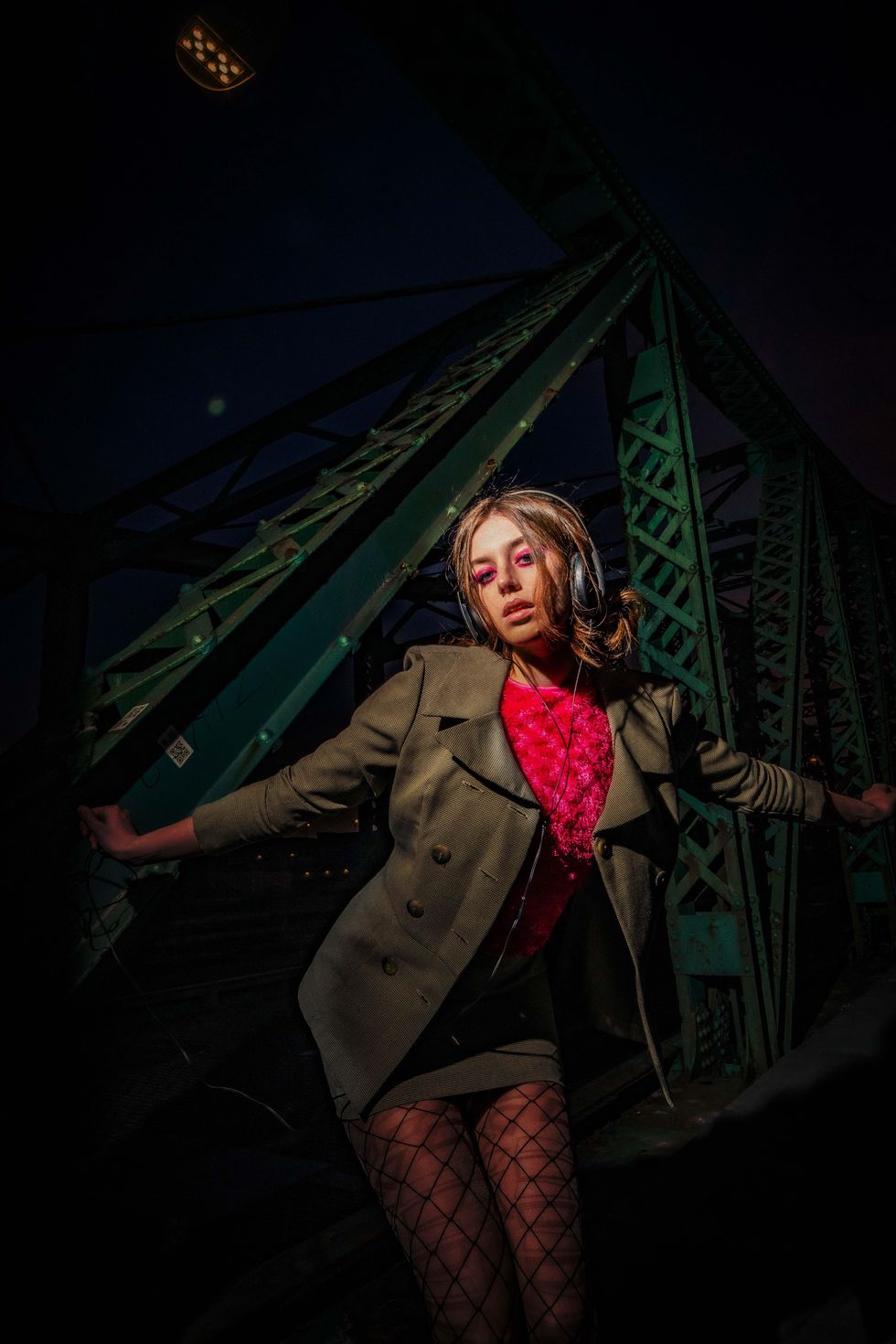
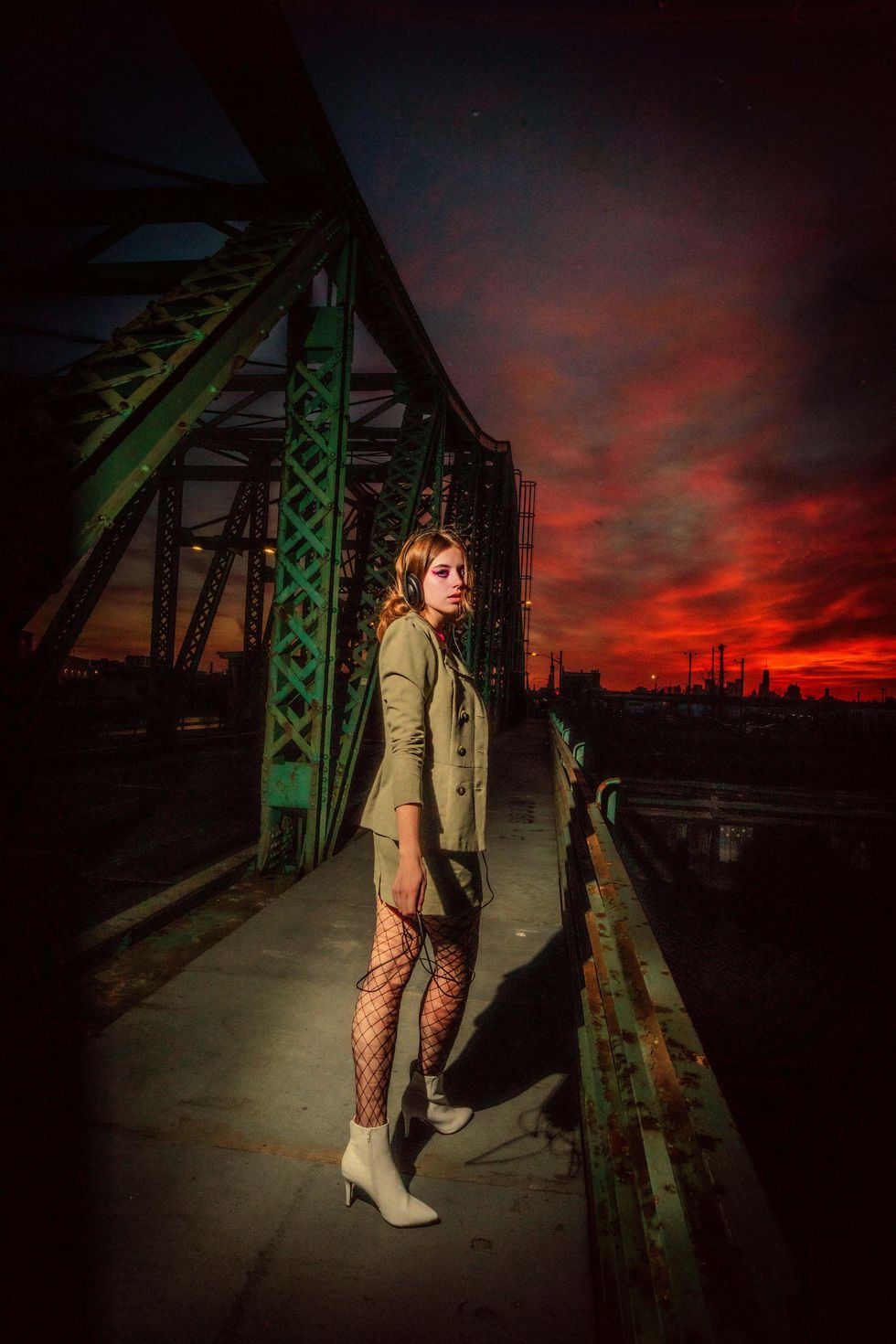

This EP is very personal and raw. What was the process of making it? Where do you draw inspiration from when starting a project?The concept behind a lot of the songs, to be broad, is the human condition. I think it’s very reflective specifically on my journey learning lessons in love and life. I’ve made a lot of mistakes and have had to unlearn behaviors that I adapted based on my trauma. The lyrics in these songs talk a lot about the trials and tribulations of growing into young adulthood. Without being self-deprecating, I find it to be very transparent about my shortcomings and an honest expression of how I am learning to be a better person through the mistakes I’ve made. I took inspiration from a few different producers and artists that inspire me like James Blake, Jim-E Stack, Radiohead, Arlo Parks, Elliott Smith and Portishead.
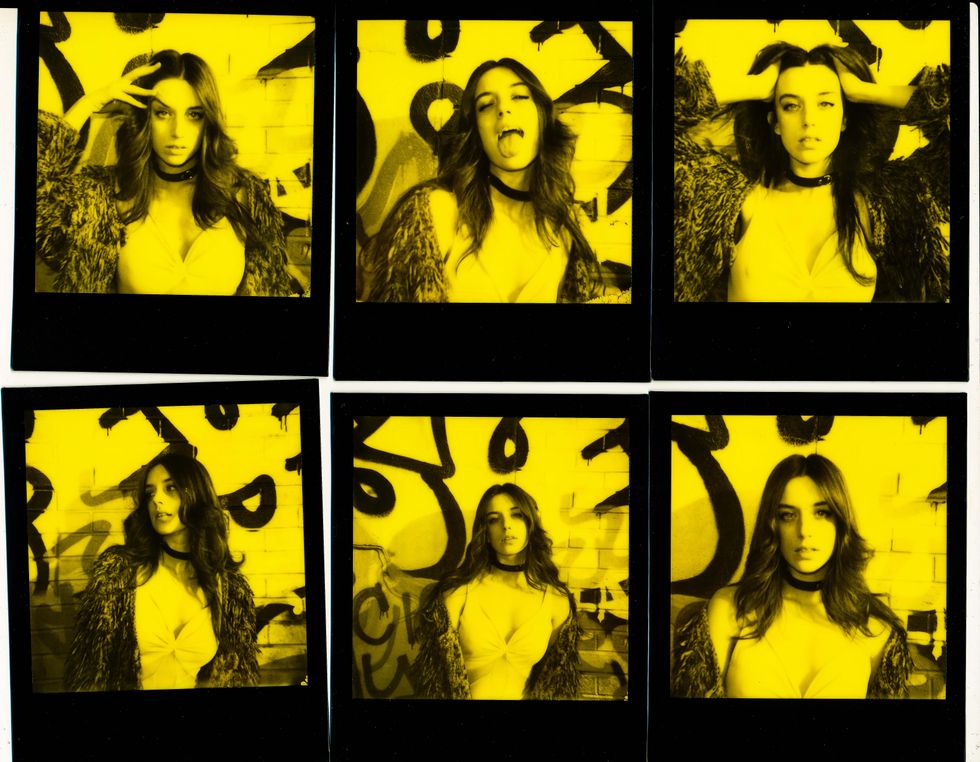
For more from Miette Hope, follow her on Instagram or Twitter.












